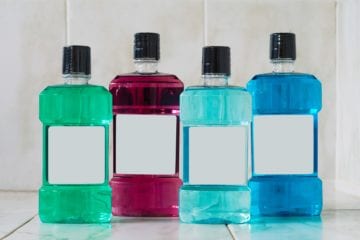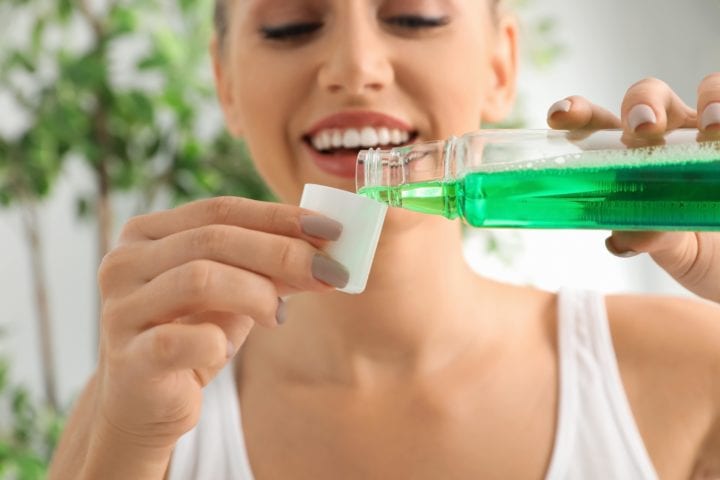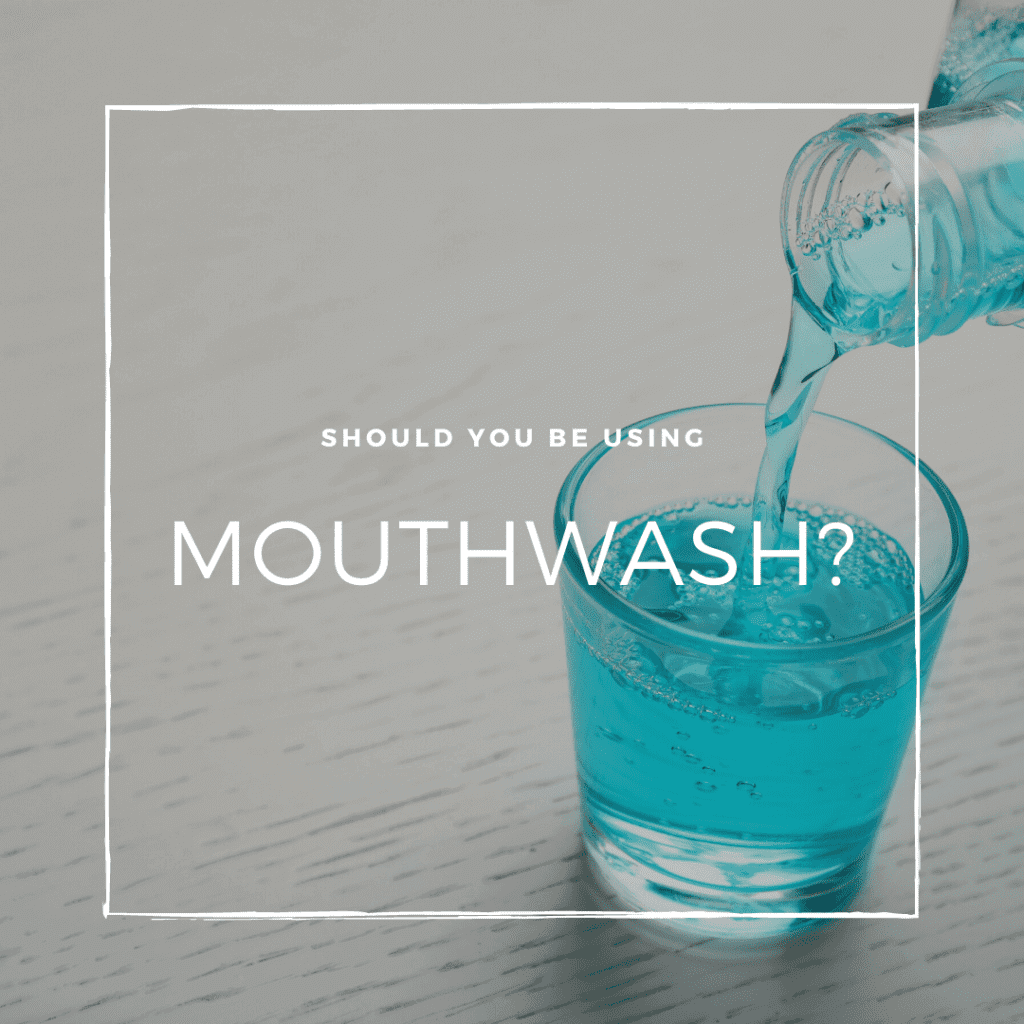When it comes to taking care of your oral health, most people are aware that brushing twice a day and flossing once a day are essential. However, when it comes to using mouthwash, not as many people know whether or how they should be using mouthwash to improve their oral health. Some people even shy away from using mouthwash simply because they don’t really know what is in it or how to use it properly. In order to remove some of the mystery that is regular mouthwash use, we have compiled this brief guide to help you learn more about what mouthwash is and when it can be used to improve your oral health.
What is mouthwash?

Chances are you have some familiarity with mouthwash and you may have even used it a few times. In the simplest sense, mouthwash is a specialized liquid that is meant to be swished around the inside of the mouth and then spit out. However, mouthwash is so much more than just a colorful liquid that removes debris from your mouth. For starters, there are two different kinds of mouthwashes: cosmetic and therapeutic. While cosmetic mouthwash is pretty much a colorful liquid that removes debris and masks odors, therapeutic mouthwashes can actually have a long-term effect on your oral health.
This is because therapeutic mouthwashes don’t mask odors. Instead, they contain ingredients that can kill the bacteria responsible for bad breath, as well as those responsible for tooth decay and gum disease. Here are some ingredients that therapeutic mouthwashes can contain, as well as what they do:
- Cetylpyridinium chloride: reduces bad breath
- Chlorhexidine: controls plaque and gingivitis (prescription only)
- Essential oils (eucalyptol, menthol, thymol, methyl salicylate): controls plaque and gingivitis
- Fluoride: strengthens tooth enamel to prevent decay
- Peroxide: used as a whitening agent in whitening mouthwashes
When choosing a mouthwash, you will need to consider what your oral health goals are. This is because there are certain formulations of mouthwashes that are designed to protect against certain dental issues. Certain mouthwashes, such as those containing peroxide, may also be too abrasive for dental restorations, so this is also something to consider when choosing a mouthwash. Overall, if you are not sure what mouthwash would work best for you, discuss your options during your next dental appointment.
Should YOU be using mouthwash?

Now that you know more about the various components of mouthwash and how they can affect your oral health, we will get into whether or not you should use mouthwash. Even though daily mouthwash use is not an essential part of oral hygiene like brushing and flossing, it can be beneficial for anyone, except children under the age of 6. With that being said, there are certain individuals that can benefit more from regular mouthwash use. If you have any of these dental issues, then YOU should be using mouthwash to improve or manage your oral health:
- Gum Disease: gum disease is an extremely common condition caused by excess plaque along the gum line. The bacteria in plaque ultimately causes the gum tissue to become inflamed and infected. While proper brushing and flossing is required to prevent and treat gum disease, using mouthwash after brushing is another way to manage gum disease. Mouthwashes for gum disease are formulated with essential oils that can kill the bacteria responsible for gum disease. Additionally, your dentist may also prescribe a chlorhexidine rinse for short term use. When using chlorhexidine, be sure to follow your dentist’s directions since it can stain your teeth.
- Dry Mouth: dry mouth is characterized by a lack of proper saliva production. Since saliva is used to manage bacterial populations and neutralize harmful acids produced by bacteria, a lack of saliva production can increase the risk of tooth decay and gum disease. Therefore, using a mouthwash formulated for dry mouth is highly beneficial. Mouthwashes for treating dry mouth contain fluoride to strengthen the enamel, as well as other ingredients that mimic natural saliva. These ingredients include enzymes, cellulose derivatives, and/or animal mucins. When treating dry mouth, you will also need to use an alcohol-free mouthwash since alcohol is known to cause dry mouth.
- Tooth Decay: using mouthwash on a regular basis can also prevent tooth decay since it contains fluoride to strengthen tooth enamel. In some cases, mouthwash can even reverse the first stage of tooth decay known as demineralization. However, it is important to note that mouthwash cannot repair a cavity once it has already formed.
- Stained Teeth: using a whitening mouthwash regularly can help to lighten your teeth. However, most whitening mouthwashes tend to be more effective at preventing new stains rather than removing old stains. Whitening mouthwashes will contain whiteners such as carbamide peroxide or hydrogen peroxide.




